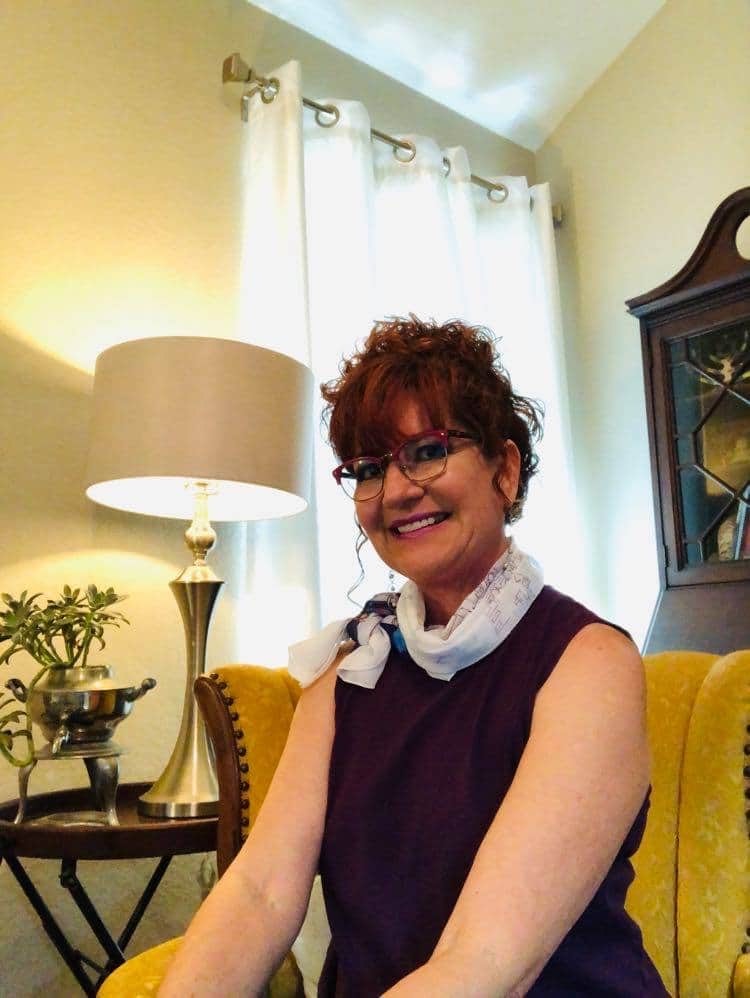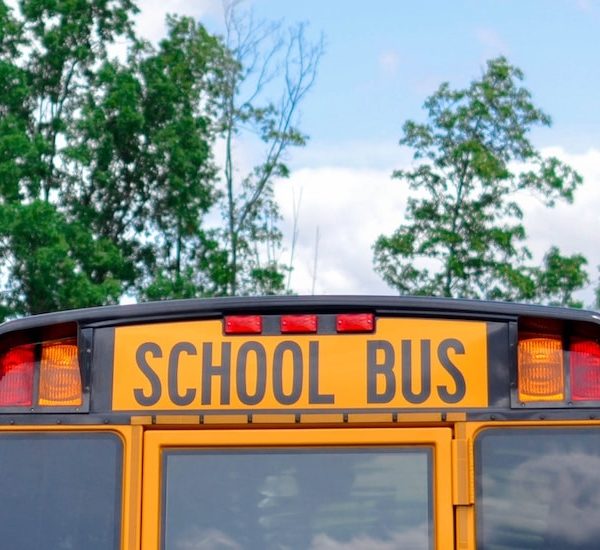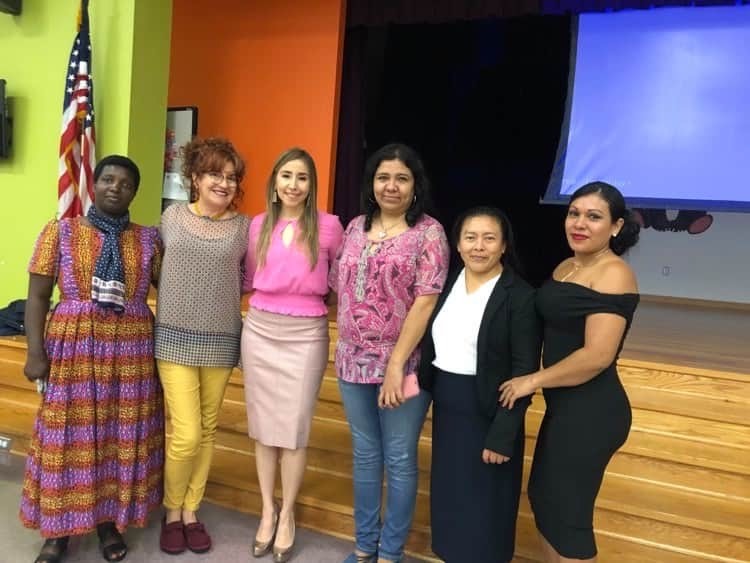SUPPORT FOR PARENTS: SECRET TO SUCCESS IN EDUCATING AT HOME

By: Daniela Rodríguez
Support for parents involved with schooling at home was a success despite the distance during the pandemic. By the end of March 2020, more than 1.6 billion children and youth were out of school worldwide due to the pandemic. Austin, Texas was no exception.
Spring and summer have passed, but the situation we are living in continues and has changed us all, especially students and parents now confronted with a new reality.
I wonder how it was possible for parents to fall into such responsibility overnight and how are they getting by? The answer is very simple: with support for parents despite the distance.
For example, people like María Hanley, a Mexican woman, whose devotion to assisting education by providing support to parents in emergencies has been exemplary in the Austin school districts. The work of women like Maria may go unnoticed by many, but here at Mujer Magazine we feel compelled to salute it.
MARÍA HANLEY
I had the opportunity to speak with María Hanley, a parent support specialist in Leander Elementary School, in Austin School District. Maria has a degree in Early Childhood Education and Teaching from the Centro de Estudios Universitarios de Monterrey and a Masters in Human Development and Family Studies from the Universidad Complutense of Madrid.

Maria Hanley is also the Founder and General Director of the Texas Education Community Resource Center, a non-profit corporation organized exclusively for educational, scientific, literary and charitable purposes, and dedicated to community development by addressing unmet needs.
Maria tells us how the last few months of the school year have been challenging with these HUGE changes in education and she PROVIDES some tips to prepare for the new school semester after the pandemic.
PARENT SUPPORT
D: Hi Maria, thank you so much for accepting this invitation. Can you explain to me what a parent support specialist does on a daily basis?
H: We are in charge of identifying, developing and involving parents in their children’s education. We work with parents to be that communication link between the school and them.
One of my duties is to organize and conduct training sessions to help parents navigate the school systems and the District; conduct meetings to disseminate information to parents on how to help their children be better; and provide resources for various types of support.
For example, if they have just moved from another country or state, we provide them with information about job opportunities, health issues such as children’s immunizations. Many times, when you are new, you don’t know where to go, so we provide that information to parents.
D: There are many responsibilities. Not only is it an education for parents, but it is also a search for the necessary tools to live better.
H: That’s right. It’s specific help for each parent because we all have different situations. Maybe I don’t need financial help or food, but I do need help finding doctors, dentists or in some other area. Sometimes even prescription eye glasses.
We know about nonprofit organizations that help children in need, especially parents who are going through a very tough economic situation. If it’s not low cost, sometimes it can be free.
D: Do you work more with the Hispanic community?
H: Every school is different. In our school there are about six or eight different languages. We have a very large community of Hispanic people but also a very large Asian community. In that situation of different languages there is an organization in the Austin school district that supports us with translators.
D: From what I see, this is something that you like to do, you enjoy being with the parents and you appear well prepared to do it.
H: My specialty is early education. I am an educator from Mexico and I have a Masters in Human Development and Family Studies from the Universidad Complutense of Madrid, and this master’s degree in family education has helped me a lot. In addition, I have worked all my life in non-profit organizations to help our people.
PARENTS AND TEACHERS?
D: Because of the Covid-19 pandemic, homes became classrooms and parents became teachers. What tools did you use to help parents meet this new challenge?
H: Well, I didn’t do it alone, but we worked together with the Austin School District (AISD) who offered help immediately. By the third day we had our own computers and were distributing Chromebook for the kids during the first week.
Then it was direct information to parents through brochures, emails and mass calls to all the families in the district. By the second week they were working. I am proud that among all the teachers we were able to reach 98% of our families in the school.

UNITED MAKES US STRONG
D: And other institutions or organizations did not help you?
H: Yes, there were organizations that helped us, for example, the city of Austin supported us with Wifi. The school district also started sending buses that had internet service and we gave families information on how to connect to these buses.
All the people in AISD, not just the teachers or the administration or us as supporters working in different areas, everyone was doing everything. It was really exemplary work.
For example, the drivers were Chromebook and food delivery guys. Other organizations helped us by bringing food to the homes of families who didn’t have a car. GAVA that is Go Austin/ Vamos Austin is also supporting the district.
Including several churches, and the United Way organization. Also, restaurants like Whataburger started giving away vegetables. And many other institutions came to help.
D: How good that everyone joined in to make this a success.
H: Yes, and another thing that people don’t know is that each area has a vertical team. This is from pre-school to high school. In each of these schools there is a parent specialist and we agree to hold weekly meetings because many of my families are families from other schools as well.
So, if I can’t reach a family because this child doesn’t come to school or the family’s phone is cut off and we don’t know how to communicate, then maybe there’s another parent specialist who sees the parent because she goes to pick up food in that area. It’s like a chain that is following the families to give them support.

SUPPORT BY TELEPHONE
D: Did you also make calls to parents?
H: That’s right. In this school in Linder there are about 500 students. There is a parent support line that is 512-414-9187. There we give them information about absolutely everything.
If there are parents who don’t have the Internet or a computer yet, there are different options where they dial in and give them specific information they are looking for. Option #5 is the most popular option, how to register your child for school.
There is also help to enter the cloud or iCloud, which is personal information of the children or families. Even there they help you to understand how the different platforms where the children are studying work.
How do parents make themselves teachers?
Actually, teachers are still teachers, but now they are virtual. Parents don’t find it so stressful because it doesn’t make them feel like they need to know what their child is studying. Imagine that they lost their job, that they don’t have anything to pay for electricity, water, telephone and all that. And add more stress because they feel compelled to know how to act like a teacher.
That’s where the school district has provided a lot of support to parents so that they don’t feel stressed about their child’s education.
D: Consider, for a moment, the quality of homeschooling by parents and its importance to their children. Obviously, it is not the same to help your children do their homework in a normal situation as it is when you must guide them through the entire semester and over various subjects. Admittedly, not all parents have that sort of patience.
H: That’s right, look, we are also supporting the parents. It’s about social-emotional learning where we are teaching parents through video conferences, information brochures and all this about how to deal with certain problems with our children.
How to change a negative behavior to a positive one. Even how to use certain words that will make them gentler, softer instead of saying no.
This will help us to be able to temper our feelings that sometimes because of thinking about the future there is a lot of anxiety or thinking about the past there is a lot of sadness. So what the social-emotional study does is to try to be in the present

SOCIAL-EMOTIONAL SUPPORT FOR PARENTS
So, is there a website where parents can access this social-emotional learning?
I have a Facebook page called Parenting Tips @Linder Elementary where parents can log in and watch certain videos for their children with activities that can help them be better students, among other things. It is available to everyone. You do not need to be part of Linder School for these tips to help you.
The page also includes information that families need, from how to fill out applications to request these services, to filling out an application for unemployment benefits, for example, and more.
D: I imagine there was a lot of frustration from children and parents with this whole situation. How do you deal with all this since your job is to help parents?
H: These are emergencies for us. That’s why it’s easier for a parent support specialist to make that contact with families and we already have a list of questions to ask them. It’s easy for us because I can tell you, I’m here to serve you.
In addition, we have access to organizations that are ready to help you with whatever a parent may need, for example, there are children with anxiety problems who have lost sleep and we can direct them to the right person.
We also have a phone line called Vida Clinic that provides free support to parents and our families in the district for mental health issues. Another number is 211 in English and Spanish where you can find information for everything.

TECHNOLOGY SUPPORT
D: Technology has been key to education in recent months, but how has communication with parents, who may not know how to use a computer, worked?
H: Children are very resilient and so are parents. In that situation of parents not knowing how to work with computers, they are leaning on their children.
It’s a little hard to explain to them how to use a computer if the parents still have problems with how a phone works. It’s much harder to help them over the phone than when they’re in my office and I can show them.
SUPPORT IN SPANISH
D: Is the information AISD sends to Hispanic parents in Spanish?
H: That’s right. Some of the things the parents would tell me is that they would call and it was all in English. This is a situation that happens a lot with families that speak two languages.
There are parents who talk on the phone and since the call starts in English, they get discouraged, and hang up. So you just have to wait a few seconds, let them start in English, but then they give you options in Spanish.

D: We know that this new school year will be very different, some schools start in the classroom, while others start with online classes this fall? What steps will be taken?
H: I encourage parents to keep listening to the news about the new school year for the most up-to-date information. What I can say is that unlike the beginning of March when we were facing something never before seen in the history of education, we now have much more support and are more organized.
So, we should be more confident that there are many options that the AISD school district is considering, because the most important thing is the well-being of our students and teachers.
D: Well, thank you very much, Maria, for the information during this interview and for all the support you give to parents and to school education in Austin.
H: Thank you and I hope to see you soon.

